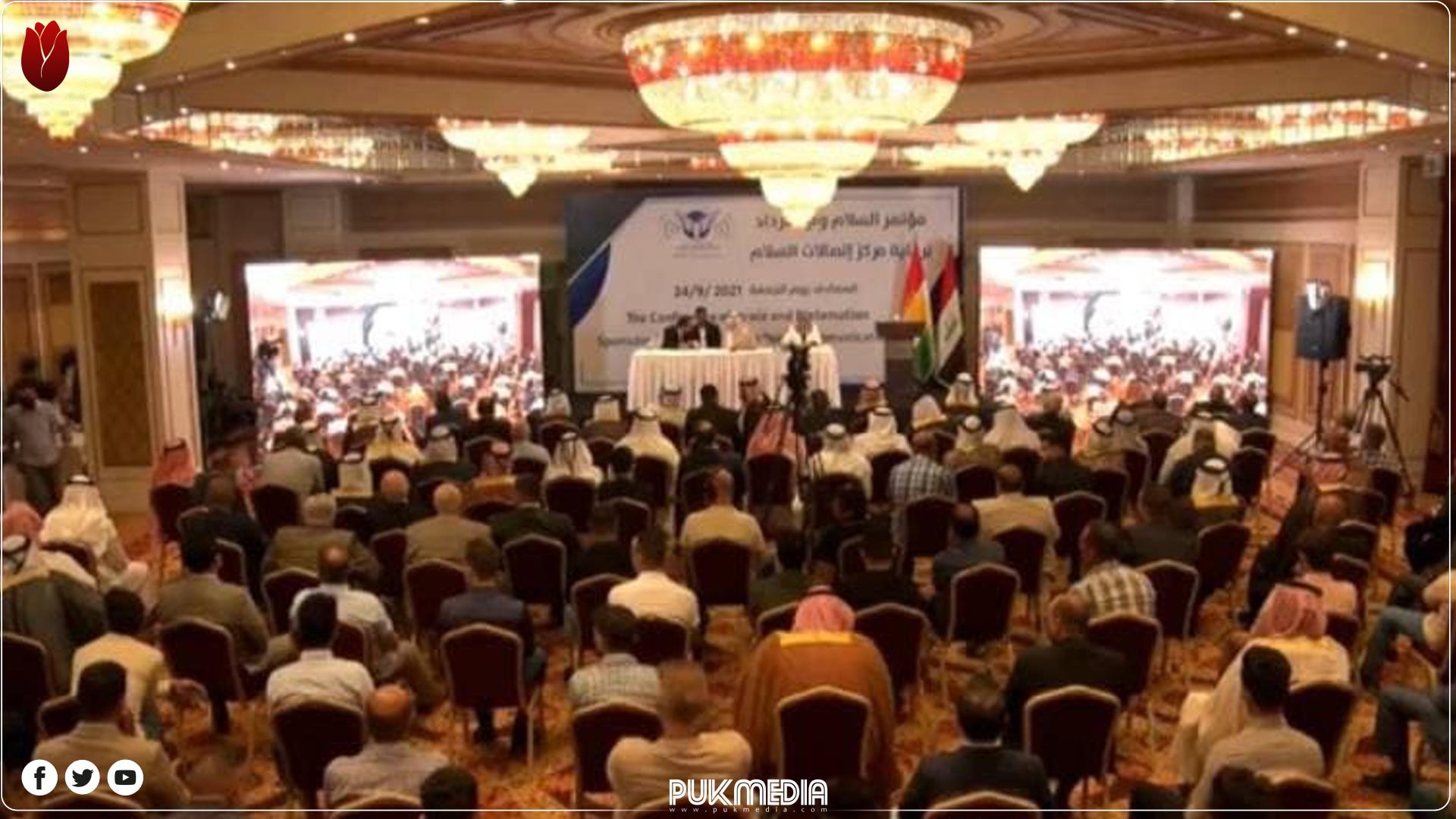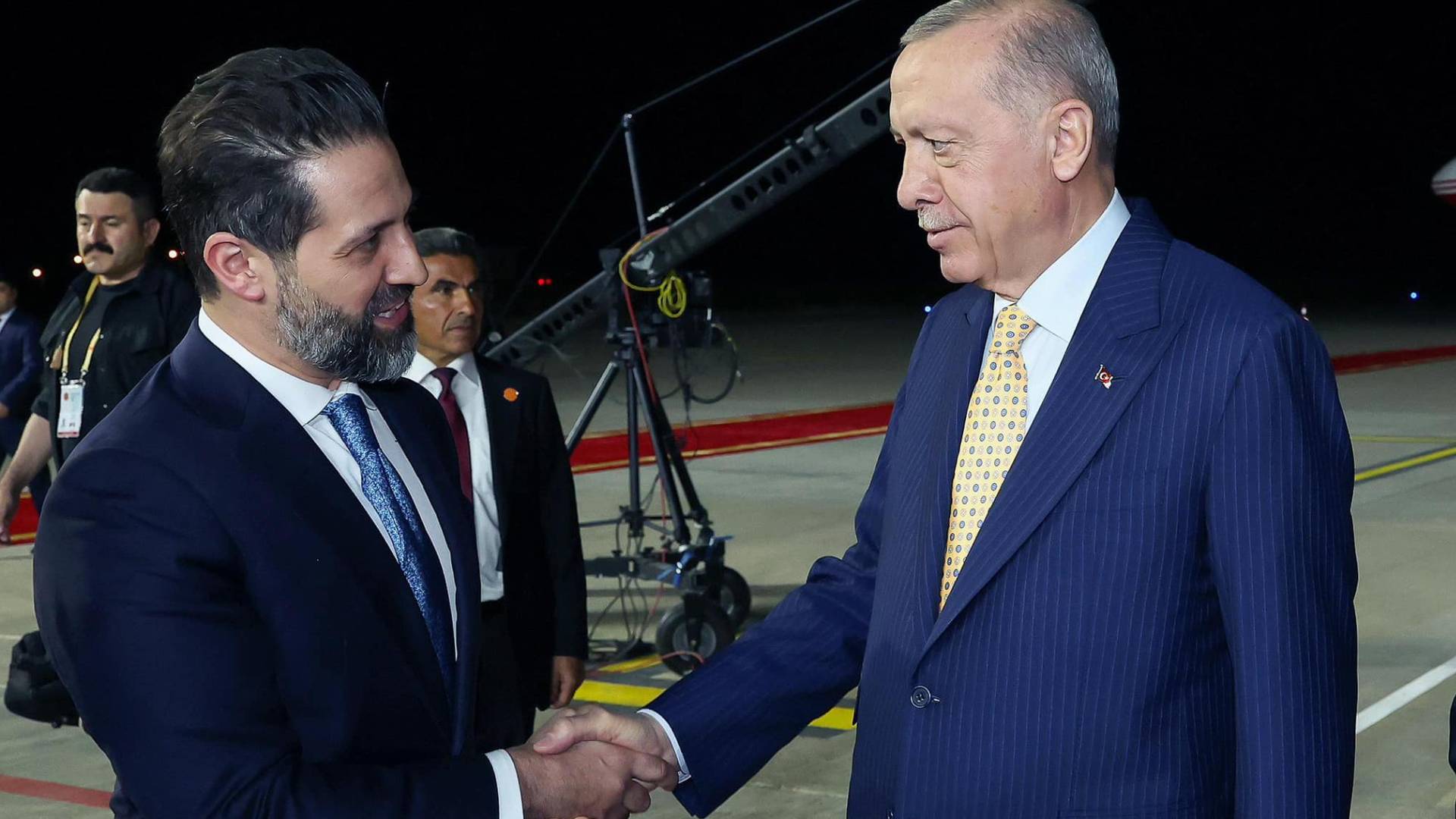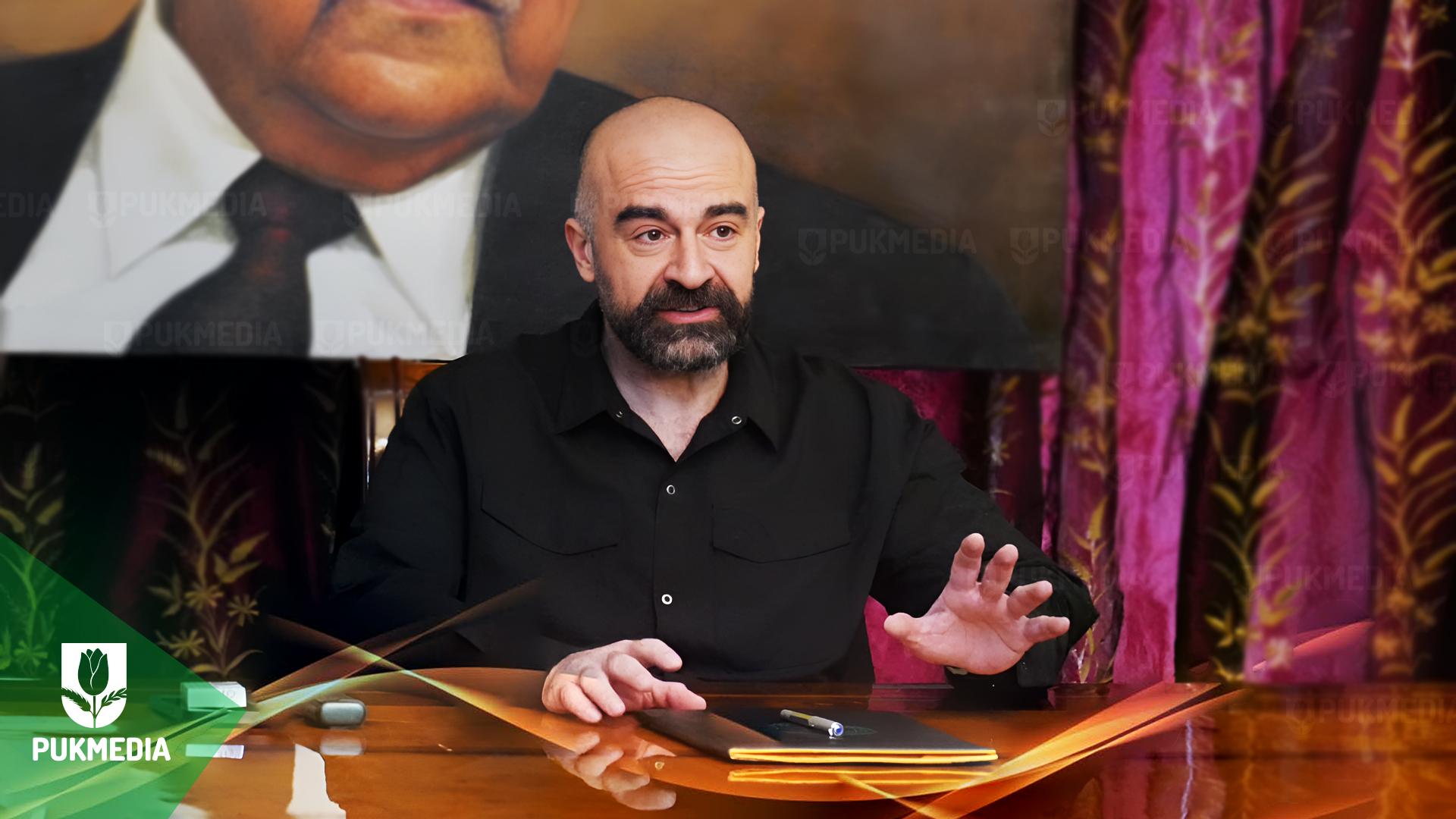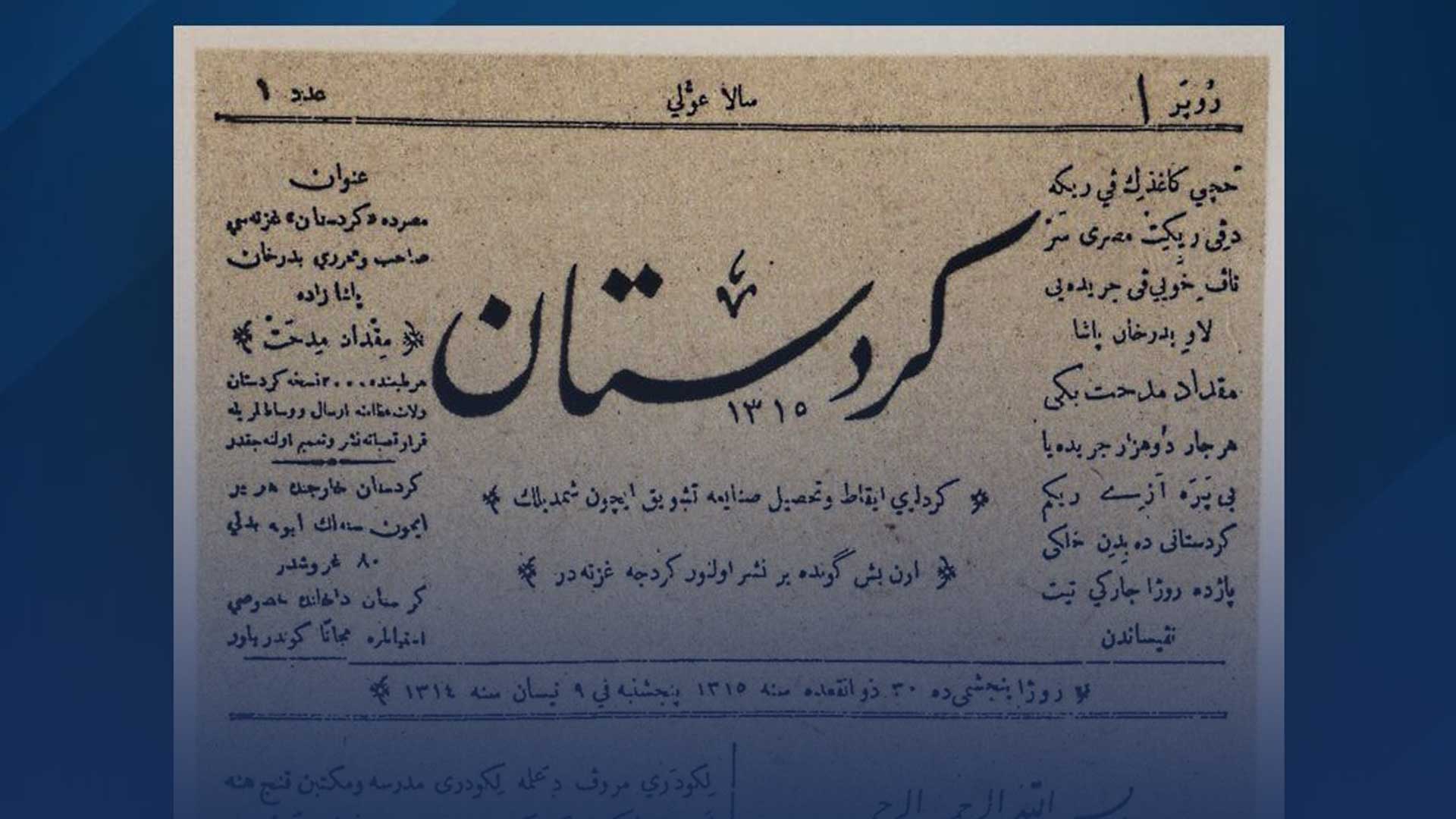Erbil conference creates major issues for the Kurds
Reports 09:56 PM - 2021-09-25
The meeting of some Iraqi tribal sheikhs and figures in Erbil on the normalization of relations with Israel has brought strong reactions and angered the government and many political parties in Baghdad.
On Friday, a group of Sunnis and Shiites from across the country met in Erbil and called for Iraq to join the Abraham Accords and normalize ties with Israel.
Meanwhile, legal experts believe that holding the conference is a violation of the law and the Iraqi constitution and consider establishing relations with any country or entity around the world falls within the authorities of the Iraqi government and no other party has the right to propose normalization with Israel as it is against the constitution.
Both the Iraqi presidency and government affirmed in separate statements that they fully reject any calls to normalize relation with Israel.
"At a time when the Presidency of the Republic affirms Iraq's firm position and support for the Palestinian cause and the implementation of full legitimate rights of the Palestinian people, it renews Iraq's complete rejection of the normalization of ties with Israel, and calls for respecting the will of the Iraqis and their independent national decision," a statement by the Presidency of the Republic of Iraq said.
"The Iraqi government expresses full rejection of the illegal meetings, which were held by some tribal figures residing in Erbil city of the Kurdistan Region, which raised the slogan of normalization of ties with Israel," the Iraqi government said in a statement, adding that, "the government confirms that these meetings do not represent the people and residents of the Iraqi cities."
"The proposal of the concept of normalization is constitutionally, legally, and politically rejected in the Iraqi state, and the government clearly expressed Iraq's consistent historical position in support of the Palestinian cause," the government's statement said.
For their part, different Iraqi leaders condemned the meeting and called on Erbil to prevent such events.
The leader of the Sadrist movement, Muqtada al-Sadr, issued a strong worded statement, calling on Erbil to prevent "Zionist terrorist meetings".
"Erbil must prevent such Zionist terrorist meetings. The government must criminalize and arrest all those who attended the meeting, or we will have to do what must be done," said al-Sadr in a tweet on Twitter.
While, the head of the National Wisdom Movement, Ammar al-Hakim, in turn denounced the conference.
"We condemn and reject conferences, gatherings and calls for normalization with the usurping Zionist entity inside Iraq," al-Hakim said in a tweet on Twitter.
It seems that these positions will not be the last. Normalization with Israel is a topic that angers many Iraqi political parties and forces, and is officially rejected by the Iraqi state. Any normalization with Israel needs a decision from the Iraqi government, which has the authority to establish international relations, meaning that this conference which took place in Erbil, will cause a major issue for the Kurdistan Region.
Four Arab nations — the United Arab Emirates, Bahrain, Morocco, and Sudan — last year agreed to normalize ties with Israel in a US-sponsored process dubbed the Abraham Accords.
The roots of the Arab–Israeli conflict have been attributed to the support by Arab League member countries for the Palestinians, a fellow League member, in the ongoing Israeli–Palestinian conflict, which in turn has been attributed to the simultaneous rise of Zionism and Arab nationalism towards the end of the 19th century, though the two national movements had not clashed until the 1920s.
Part of the Palestine–Israel conflict arose from the conflicting claims by these movements to the land that formed the British Mandatory Palestine, which was regarded by the Jewish people as their ancestral homeland, while at the same time it was regarded by the Pan-Arab movement as historically and currently belonging to the Arab Palestinians, and in the Pan-Islamic context, as Muslim lands
PUKmedia
More news
-
German Forces Commander Ended his Mission at Mam Jalal's Grave
12:28 PM - 2024-04-23 -
Golden Bla Awards Ceremony Takes Place in Sulaymaniyah
11:32 AM - 2024-04-23 -
PUK Official: PUK is Committed to Holding Elections on Time
11:04 AM - 2024-04-23 -
Turkish President Meets Kurdish Officials in Erbil
10:42 AM - 2024-04-23



.jpg)


 Application
Application


